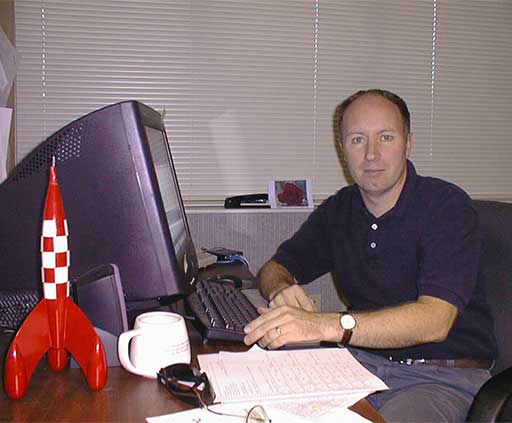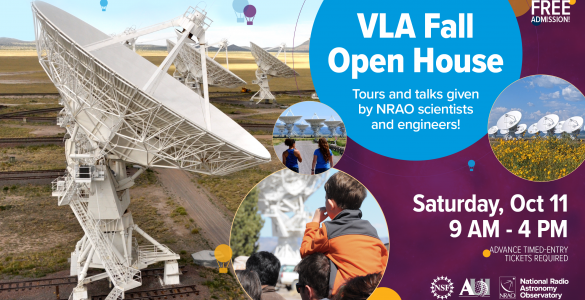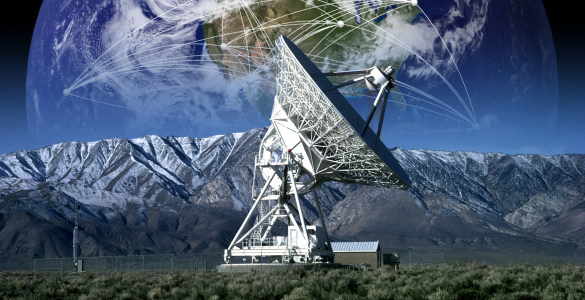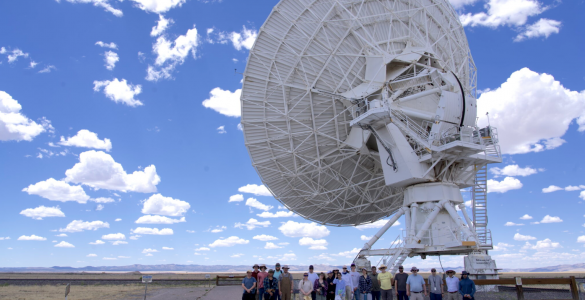Dr. Dale Frail, an astronomer at the National Radio Astronomy Observatory (NRAO) in Socorro, New Mexico, has been awarded a prestigious Guggenheim Fellowship, according to the John Simon Guggenheim Memorial Foundation. The Guggenheim Foundation describes its fellowships as “mid-career” awards “intended for men and women who have already demonstrated exceptional capacity for productive scholarship or exceptional creative ability in the arts.”
Frail, 48, has worked at the NRAO for more than 20 years, first as a postdoctoral fellow, and then as a staff scientist. He received his bachelor’s degree in physics from Acadia University in Nova Scotia, and his Ph.D in astronomy from the University of Toronto.
Frail is best known for his landmark contributions to the understanding of gamma ray bursts, making critical measurements that provided key insights into the mechanisms of these superenergetic and once-mysterious explosions. He also has made important contributions to the understanding of other astronomical phenomena, including pulsars and their neighborhoods, supernova remnants, and magnetars. In 1992, he was the co-discoverer, with Alex Wolszczan, of the first planets outside our own solar system.
“We congratulate Dale on this well-deserved honor that recognizes not only his past achievements but also his potential for exciting scientific work in the future,” said Dr. Fred K.Y. Lo, NRAO Director. “We’re very proud to see one of our scientists receive such a great honor,” Lo added.
Frail is one of 180 recipients of this year’s Guggenheim Fellowships, chosen from some 3,000 applicants. The fellowships were established in 1925 and past recipients include photographer Ansel Adams, author Saul Bellow, former Secretary of State Henry Kissinger, and chemist Linus Pauling. 102 Guggenheim Fellows have subsequently won Nobel Prizes, and others have received Pulitzer Prizes and other honors.
As a Guggenheim Fellow, Frail intends to intensify his research in the areas of pulsars, cosmology, and gamma ray bursts, using the new and dramatically-improved capabilities of the Very Large Array (VLA) to advance the frontiers of knowledge. “I like to work at the limits of technology, and the new capabilities of the VLA are providing opportunities of the kind that come along only once in a generation,” Frail said.
The National Radio Astronomy Observatory is a facility of the National Science Foundation, operated under cooperative agreement by Associated Universities, Inc.











